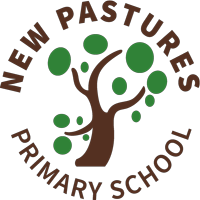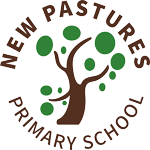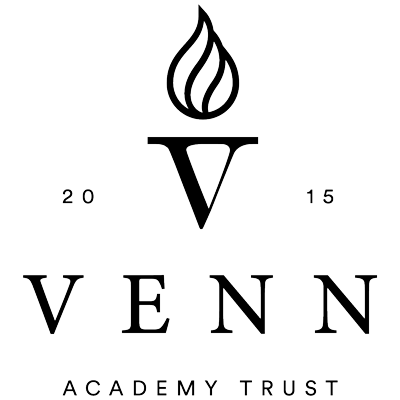Reading – curriculum information
At New Pastures Primary School we ensure our curriculum is fully inclusive to every child. Reading is a key life skill and we strive to embed a culture of reading into the core of what we do in order for pupils to develop culturally, emotionally, intellectually, socially and spiritually.
We fulfil the requirements of the National Curriculum for English, providing a broad, balanced and differentiated curriculum that encompasses the British Values throughout.
We firmly believe that by delivering a quality English curriculum we will develop children`s love of reading, writing and discussion.
Intent
• To foster a lifelong love of reading by exposing our children to quality literature across all curriculum areas and enhancing the variety of topics that we teach.
• Through reading, give children the opportunity to explore new ideas, visit new places, meet new characters and develop a better understanding of other cultures and the wider world.
• To build children’s vocabulary and give them the word power they need to become successful speakers and writers as well as confident readers.
• To develop reading accurately with fluency and understanding.
• To help children become active, confident and independent readers through developing their comprehension skills.
• To have a thorough knowledge of the basic skills needed for reading which follows a clear pathway of progression that carries them forward to the next phase of their education.
Phonics
To be able to read, children need to be taught an efficient strategy to decode words. That strategy is phonics. It is essential that children are actively taught and supported to use phonics as the only approach to decoding and other strategies must be avoided. Phonic decoding skills must be practised until children become automatic and fluent reading is established. All of our reading books are closely matched to the graphemes your child is learning. Little Wandle is the scheme we use to teach our children phonics.
Implementation
Staff Subject Knowledge and professional development
The English leader ensures that all staff are well supported to implement the English action plan through careful alignment of CPD to actions and policies, closely monitoring and feeding back on planning, lesson observations, work scrutinies, attending LA Network meetings, reading current research, as well as discussion and termly questionnaires with colleagues.
Ensuring progress for all pupils
There is a clear skills progression for each year group in reading which sits alongside carefully chosen texts to inspire children’s learning across the whole curriculum. Assessment systems are rigorous using the school skills progression. Through lesson observations, data analysis and pupil progress meetings teachers and leaders identify barriers and agree actions and interventions for children who are not making expected progress. A variety of reading interventions are used.
We encourage the joy of reading through a variety of initiatives including the collaboration with Doncaster Stories. We explicitly teach pupils how to access non-fiction texts and ensure they have access to a range of information texts through IT resources and termly non-fiction book loans to support topics.
We ensure all pupils have access to quality books to take home – buying every child in school a book and encouraging a love of reading. Meetings and workshops are held for parents as well as guidance, on how parents/carers can support their child.
The teaching and learning sequence
There is a whole school reading curriculum plan where quality core texts from a variety of genres and authors for each year group. These are constantly reviewed and updated based on new publications and recommendations.
In phonics, we follow Little Wandle as our core scheme. Home and Guided reading books are reviewed to ensure they are in line with each phonics phase. Staff assess phonics using the on-line assessment tool for this scheme and previous National Phonics tests.
In Key Stage 2, there is a clear weekly sequence which supports children’s practice of the different reading domains. The quality texts we have chosen cover a broad spectrum of literature including novels, non-fiction and poetry.
Impact
• Pupils are able to decode and read with fluency words at an age-appropriate level. They are able to apply their growing phonic knowledge to a range of reading materials,
• Pupils have a growing comprehension and skill development appropriate to their age.
• Pupils are active readers where they are able to use a variety of strategies to engage with texts such as connecting to their previous reading and own experiences.
• All pupils have a developing bank of strategies to be able to understand the meaning of new vocabulary.
• All pupils are engaged in lessons because they are ‘hooked’ from the outset and have a clear understanding of the purpose and audience of different texts.
• Children can clearly talk about their reading preferences and develop a love of reading.
• Reading environments promote the love of reading and encourage pupils to read further texts by the same author of genre.
• Pupils are able to reflect upon their work, both with the guidance of an adult and their peers and know the next steps in their learning in order to make good progress.
• There is a great emphasis on the use of good vocabulary in all teaching and pupils’ writing shows an increasing amount of appropriate language structures. This is well supported within the classroom environment.
• Pupils will leave primary school being able to effectively apply their reading skills in order to deepen their learning.
• Parents and carers will have a good understanding of how they can support reading at home.
• The % of pupils working at ARE within each year group will be at least in line with national averages.
• The % of pupils working at Greater Depth within each year group will be at least in line with national averages.
• There will be no significant gaps in the progress of different groups of pupils (e.g. disadvantaged vs non-disadvantaged.)


